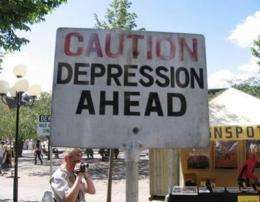More years to life and life to years through increased motivation for an active life

Regular physical activity is associated with a lower risk of suffering depression in old age. This is shown by one of the largest studies on elderly Europeans to have been carried out, by researchers at the University of Gothenburg, Sweden, among others. Research also shows that self-determined motivation and perceived competence are important factors in persuading elderly people to exercise more.
"We do not yet know for sure what the causal relationship between physical activity and depression is like. What is clear is that elderly people who are physically active are less depressed, but higher levels of depression can also lead to less exercise, and this suggests there is a mutual influence," says Magnus Lindwall, docent (associate professor) in exercise and health psychology at the University of Gothenburg.
In a recently published study Lindwall, together with research colleagues, has studied 17,500 elderly people with an average age of 64 from 11 European countries who are taking part in the large EU-funded population study Survey of Health, Ageing and Retirement (SHARE). The subjects in the study were followed up over a period of two and a half years, among other things with regard to physical activity and depression.
"This study is one of the first to look at both how physical activity affects future depression and vice-versa, and how change in physical activity is associated with change in depression over time," says Lindwall.
"An important question for the researchers to answer has been what motivates elderly people to be physically active. Modern motivational theories propose, for example, that individuals who feel that they are competent, that they can take decisions for themselves and have freedom of choice and that they feel social relatedness linked to physical activity experience a more internal and a less controlled form of motivation for exercise. This form of motivation, unlike a non-self-determining external form of motivation, is also associated with the maintenance of long-term regular physical activity, which also improves the prospects for the positive effects that physical activity can have on both physical and mental health.
"Right now we are developing and testing a structured programme to increase motivation for physical activity among the elderly based on the theories that today has strong support in the research," says Lindwall.
The results support the recommendations to use physical activity as a powerful preventive measure against mental ill-health in the elderly.
"But regular physical activity is required, otherwise there is a great risk of the long-term favourable effects on health being lost. It is therefore important to identify the barriers, for example depression, that prevent the elderly from being physically active and focus on how to increase the motivation of elderly people for physical activity," says Lindwall.















